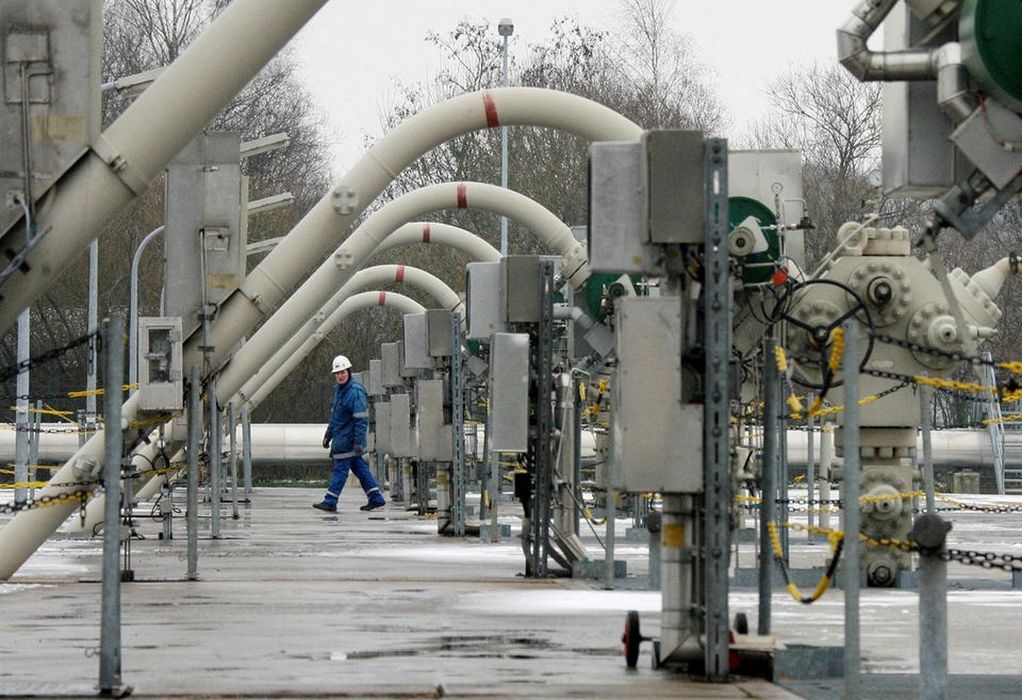Europe plans to build enough new gas power stations to supply 60 million homes despite a target of decarbonising electricity grids by the middle of the 2030s.
About 72 gigawatts-worth of new gas-fired power stations are planned across the Continent, according to a report from pressure group Beyond Fossil Fuels.
Gas power capacity across the Continent is on track to rise by 27% under current proposals, despite a promise among G7 nations to decarbonise electricity grids by 2035.
Britain is planning or building more gas-fired power stations than almost any other European country, the analysis found.
Rishi Sunak announced plans to build new gas power stations earlier this month, saying Britain cannot risk blackouts on the way to net zero by 2050.
Plans in Britain include several developments by subsidiaries of Drax Group, the operator of the controversial Drax power station. Drax was once Europe’s largest coal-fired power station but now burns wood chips imported from the USA, a practice which has been widely criticised by environmental groups.
Drax Group’s expansion plans include Abergelli Power, which is scheduled to start up this year, and nearby Hirwaun Power, also a Drax subsidiary, both in South Wales.
Further east, Millbrook Power is planning a gas fired power station near Milton Keynes. It too is a Drax subsidiary as is Progress Power, which is planning a gas-fired power station on Eye Airfield, a former Second World War US airbase in Suffolk.
Drax Group has said that the planned power stations will be relatively small and will only be used during periods of peak electricity demand when intermittent renewable technologies are unable to produce the power required to keep the country running – for example when the wind isn’t blowing and the sun isn’t shining.
A much larger gas-fired power station is planned at Eggborough, near Selby in North Yorkshire on the site of a former coal-fired power station.
There, EPUK Investments, a subsidiary of Czech-based conglomerate EPH, has planning permission to build a massive 2.5GW gas-fired power station that would power two million homes.
It too argues that the giant power station would be flexible, providing power to back up intermittent renewables. However, critics say that once built its owners would want to maximise profit by running it as much as possible.
Beyond Fossil Fuels argues that all such projects will undermine the UK’s commitment to stop using fossil fuels to generate electricity by 2035. Labour has said it would decarbonise the grid five years earlier, by 2030, if it won power.
Europe’s gas industry has come under heightened scrutiny in recent weeks. Earlier this month climate activists in Denmark, Germany, Norway, the Netherlands and Sweden staged blockades at roads, ports and refineries in protest at government decisions to issue permits for additional North Sea oil and gas exploration.
The annual European Gas Conference planned this week in Vienna was called off with organisers citing concerns over potential protests.
Tags: Europe, Fossil Fuels, G7 Nations, NetZero



Recent Posts
Scandlines Nears Delivery of Zero Emissions Ferry Following Successful Sea Trials
India faces emission roadblocks with rising net-zero demands
Green Energy Resources invests in two electric Liebherr LHM 550
NYK Launches Continuous Use of Bio LNG Fuel on Car Carriers to Advance Decarbonization Goals
Yang Ming Expands Fleet with Methanol and LNG Dual-Fuel Vessels Under Fleet Optimization Plan
ClassNK Advocates Speed Gap Monitoring to Optimize Fuel Efficiency in Heavy Weather
Wärtsilä’s retrofit package for the Corsica Linea ferry Pascal Paoli has resulted in fuel savings of up to 22 percent Corsica Linea
COSCO Shipping Names Second Methanol Dual-Fuel Containership in Yangzhou